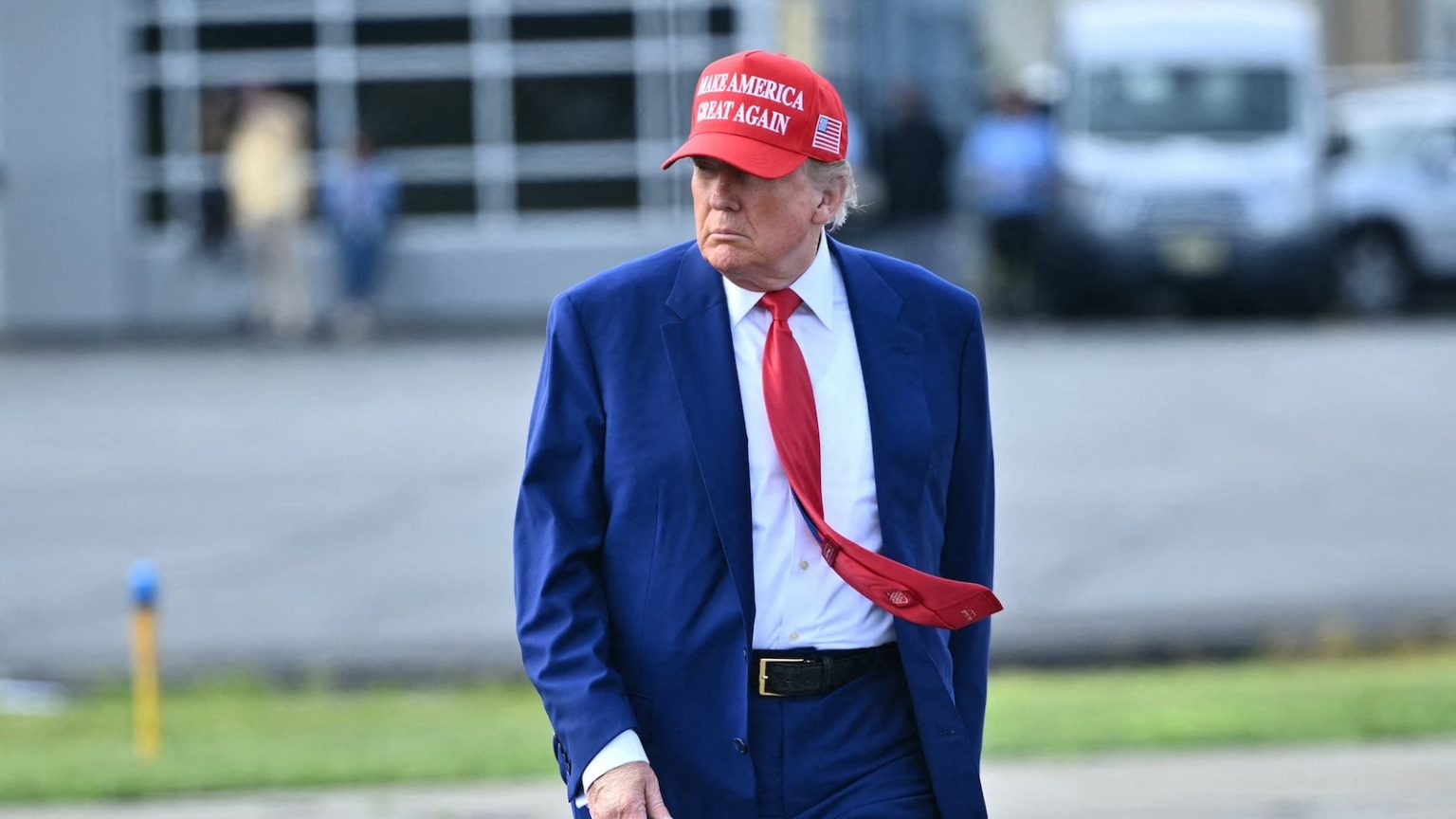It was just on Thursday that President Donald Trump said he would decide “within the next two weeks” on whether to order a U.S. military strike on Iran’s nuclear facilities — ostensibly to give diplomacy a chance, at least temporarily.
“Based on the fact that there’s a substantial chance of negotiations that may or may not take place with Iran in the near future, I will make my decision whether or not to go within the next two weeks,” Trump said in a statement read to reporters by White House press secretary Karoline Leavitt.
On Friday, asked by a reporter to explain his thinking, he responded it was to give time for the Iranians to “come to their senses.”
President Donald Trump makes his way to board Air Force One at Morristown Municipal Airport in Morristown, New Jersey, on June 21, 2025, as he returns to the White House from his golf club in Bedminster, New Jersey.
Mandel Ngan/AFP via Getty Images
The president also dismissed the talks held in Geneva Friday between European diplomats and Iran’s foreign minister Abbas Araghchi, playing down the already low expectations for a breakthrough.
“They didn’t help,” Trump said of the discussions. “Iran doesn’t want to speak to Europe. They want to speak to us. Europe is not going to be able to help in this one.”
Iran’s Foreign Minister Abbas Araghchi speaks to the media after his meeting with the E3 group of European ministers, June 20, 2025 in Geneva, Switzerland.
Sedat Suna/Getty Images
He added, “we are ready, willing and able and have been speaking to Iran and we’ll see what happens.”
When a reporter asked, “Does Iran have two weeks or could you strike before that? Are you essentially giving them a two-week timeline?” Trump answered, “Well I’m giving them a period of time. We’re going to see what that period of time is. But I’m giving them a period of time, and I would say two weeks would be the maximum.”
In recent days, Iran has rebuffed a standing offer from the U.S to resume nuclear negotiations.
The president’s announcement Thursday about a possible delay in hitting Iran frustrated Israeli officials, who have been privately pushing their case for U.S. military involvement for months, according to officials familiar with the matter.
Meanwhile, as sharp differences between Israeli and American assessments on Iran’s nuclear abilities came to the forefront, Trump also showcased distrust for his own intelligence community, including his own director of national intelligence, Tulsi Gabbard.
On Friday, Trump was asked about Gabbard’s testimony to Congress in March that the U.S. assessed that Iran was not “building” a nuclear weapon and that Supreme Leader Ali Khamenei had not authorized the nuclear weapons program he suspended in 2003.
“She’s wrong,” Trump said flatly.
Shortly after Trump spoke, Gabbard criticized the news media, posting on X, “America has intelligence that Iran is at the point that it can produce a nuclear weapon within weeks to months, if they decide to finalize the assembly. President Trump has been clear that can’t happen, and I agree.”
President Donald Trump addresses the nation, alongside Vice President JD Vance, Secretary of State Marco Rubio and Secretary of Defense Pete Hegseth from the White House in Washington, June 21, 2025.
Carlos Barria/Reuters
Speaking to the nation late Saturday night — about two hours after he announced the strikes — Trump said, “Iran, the bully of the Middle East, must now make peace. If they do not, future attacks will be far greater and a lot easier.”


